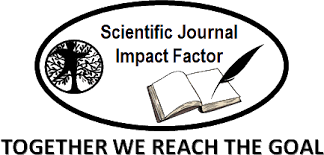The poetics of science fiction characters in 21st century American literature
DOI:
https://doi.org/10.62480/tjpch.2024.vol37.pp6-11Keywords:
Science Fiction, Technological Innovation, Alienation, Identity FragmentationAbstract
This article explores the poetics of science fiction in 21st-century American literature, focusing on the works of William Gibson and Neal Stephenson. Both authors engage with critical themes such as technology, identity, and ethics, offering distinct yet complementary perspectives on humanity’s evolving relationship with innovation. Gibson’s introspective narratives often depict alienation and fragmented identities in hyper-mediated worlds, emphasizing the limitations of agency under systemic forces. In contrast, Stephenson’s expansive storytelling highlights technological ambition, interconnectivity, and the moral dilemmas of innovation, celebrating human ingenuity while interrogating its consequences. By comparing their approaches to shared themes like alienation, agency, and the ethical implications of progress, this study illuminates how Gibson’s atmospheric poetics and Stephenson’s grand narratives offer a rich exploration of the human condition in technologically transformed landscapes. Ultimately, their works challenge readers to consider the balance between technological potential and ethical responsibility, underscoring the enduring quest for meaning and connection in a rapidly changing world
References
Cavallaro, Dani. Cyberpunk and Cyberculture: Science Fiction and the Work of William Gibson.
London: Athlone Press, 2011.
Csicsery-Ronay Jr., Istvan. The Seven Beauties of Science Fiction. Middletown: Wesleyan
University Press, 2008.
Freedman, Carl. Critical Theory and Science Fiction. Hanover: Wesleyan University Press, 2000.
Hollinger, Victoria. "Temporal Displacement and Identity in The Peripheral." Science Fiction
Studies, vol. 43, no. 2, 2016, pp. 241–259.
Delany, Samuel R. "Reflections on Ethics in Speculative Fiction: Neal Stephenson’s
Cryptonomicon." Extrapolation, vol. 53, no. 3, 2012, pp. 325–342.
McCarthy, Sean. “Digital Immortality and Ethical Dilemmas in Fall; or, Dodge in Hell.” SFRA
Review, vol. 50, no. 4, 2020, pp. 35–42.
Henthorne, Tom. William Gibson: A Literary Companion. Jefferson: McFarland, 2011.
Hayles, N. Katherine. How We Became Posthuman: Virtual Bodies in Cybernetics, Literature, and
Informatics. Chicago: University of Chicago Press, 1999.
Booker, M. Keith, and Anne-Marie Thomas. The Science Fiction Handbook. Chichester: WileyBlackwell, 2009.
Stableford, Brian. The Sociology of Science Fiction. San Bernardino: Borgo Press, 1987.
Sterling, Bruce. Mirrorshades: The Cyberpunk Anthology. New York: Ace Books, 1986.
Murray, Janet H. Hamlet on the Holodeck: The Future of Narrative in Cyberspace. Cambridge: MIT
Press, 1997.
Suvin, Darko. Metamorphoses of Science Fiction: On the Poetics and History of a Literary Genre.
New Haven: Yale University Press, 1979.
Kellner, Douglas. Media Culture: Cultural Studies, Identity, and Politics Between the Modern and
the Postmodern. London: Routledge, 1995.
Luckhurst, Roger. Science Fiction. Cambridge: Polity Press, 2005.
Bainbridge, William Sims. The Meaning and Value of Spaceflight: Public Perceptions. Cham:
Springer, 2015.
Broderick, Damien, and Veronica Hollinger. Reading by Starlight: Postmodern Science Fiction.
New York: Routledge, 1995.
Downloads
Published
Issue
Section
License

This work is licensed under a Creative Commons Attribution-NonCommercial 4.0 International License.
User Rights
Under the Creative Commons Attribution-NonCommercial 4.0 International (CC-BY-NC), the author (s) and users are free to share (copy, distribute and transmit the contribution).
Rights of Authors
Authors retain the following rights:
1. Copyright and other proprietary rights relating to the article, such as patent rights,
2. the right to use the substance of the article in future works, including lectures and books,
3. the right to reproduce the article for own purposes, provided the copies are not offered for sale,
4. the right to self-archive the article.












